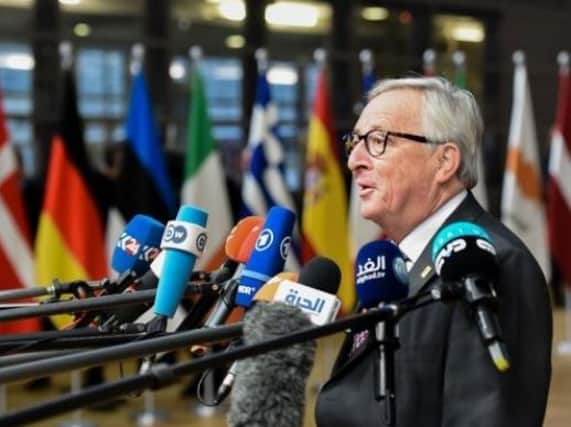Westminster warned that EU won't improve Brexit deal


The UK Government faces a difficult task navigating the deal through a parliament, with well over 80 Conservative MPs committed to voting against it.
European Commission president Jean-Claude Juncker told reporters: "This is the deal. It's the best deal possible and the EU will not change its fundamental position when it comes to these issues.”
Advertisement
Hide AdAdvertisement
Hide AdHe added: “I believe the British parliament, because it is a wise parliament, will say yes.”
Mr Juncker's comments were echoed Dutch prime minister Mark Rutte who urged MPs to give their approval in next month's expected "meaningful vote" in the House of Commons.
"This is the deal on the table. I don't think there is anything more now. I don't want to contemplate a no vote. I think there will be a yes vote," he said.
"I think this is the best we can all do - both Theresa May and her Government as well as the European Union.
"I do think she has everything now to argue for a yes vote in the British Parliament."
Hinting at the difficult negotiations to come over trade and security even if the deal is passed by MPs, the EU's chief negotiator Michel Barnier described the agreement as a "necessary step" to “build trust”.
"Now it is time for everybody to take their responsibility,” Mr Barnier said. “This deal is a necessary step to build the trust between the UK and the EU we need to build.
French President Emmanuel Macron stoked the ongoing row over the impact of the Brexit deal on British fishermen, arguing that it set out provisions for “reciprocal access” to fishing waters as part of a future trade deal.
Advertisement
Hide AdAdvertisement
Hide AdMr Macron insisted that French fishing interests “will be well protected” in trade talks, in comments that will add to fears the UK could remain bound by similar quotas and restrictions as under the EU’s Common Fisheries Policy.
